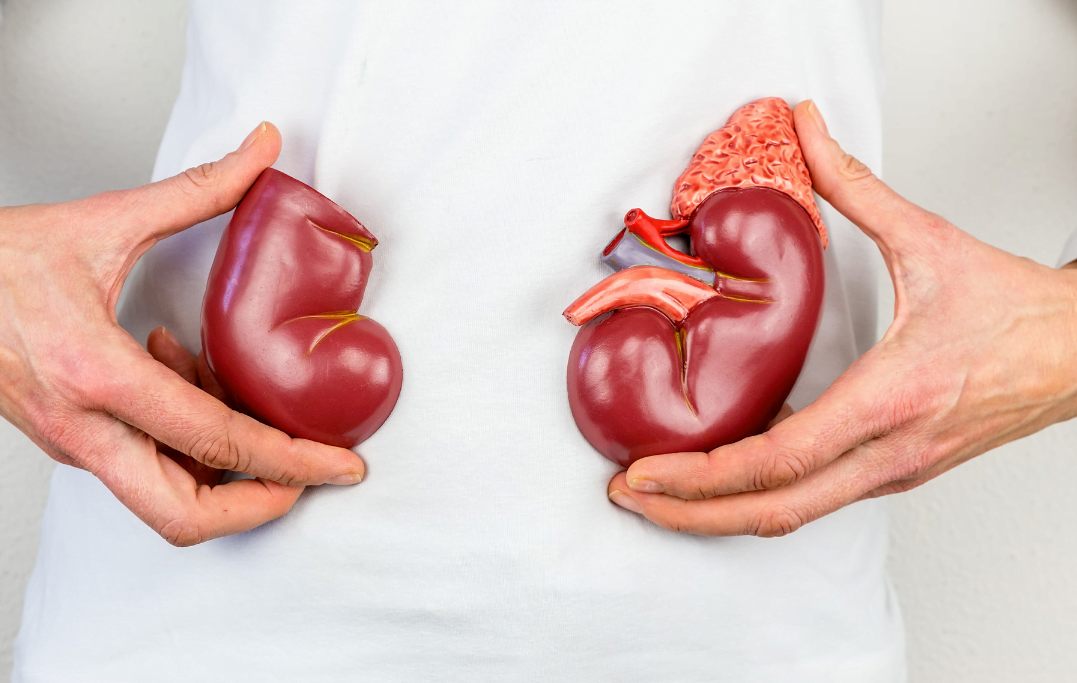Kidney stones can develop from waste products in your urine. Kidney stones can form when substances in the urine—such as calcium, oxalate, and phosphorus—become highly concentrated. Large amounts of waste product in small volumes of urine can bind together to form crystals. These crystals can then join together to form a hard lump called a kidney stone. Kidney Stones can be prevented or controlled through dietary intake.
There are four different types of Kidney Stones:

- Calcium Stones make up 80 % of the stones and are the most common type. Calcium Oxalate is more common whereas Calcium phosphate is less common.
- Uric acid stones make up 5-10% of stones and are common in people who are overweight, have type 2 diabetes, gout, or eat too much animal protein.
- Struvite/Infection stones make up around 10% of the stones. They occur from Urinary Tract Infections (UTIs).
- Cysteine Stones make up less than 1% of the stones. These are rare and they form when there is a high amount of cysteine in your urine.
If you know which type of stone you have, you can target your diet to prevent the kidney stones from forming again. Get in touch with one of our nutritionists to see how they can help with creating a kidney stone preventative diet.
If you do not know the type of Kidney stone you have, you can still make dietary changes and take certain supplements as preventative measures.

Studies have shown that the following things help you fight future kidney stones:
- Drink Lots of fluids!
- Try to get at least 3 liters or 8-10, 10-oz glasses per day.
- Increase your daily consumption of fruits and vegetables.
- Try to get 5 servings each of ½ cup.
- Limit foods with high oxalate levels
- If you have high urine oxalate levels, aim to eat foods that contain low oxalate levels such as peppers, broccoli, bananas, low-fat dairy, papayas, etc.
- Decrease your meat consumption.
- One serving of meat per day is all you need, about the size of your fist.
- Replace your food with more plant-based proteins and limit your meat intake to one small portion a day.
- Eat more Calcium-Rich Foods.
- Aim to get 1,000 mg of Calcium per day.
- Limit your salt intake in your diet.
- Decrease your sodium consumption in your diet. You should aim to limit your salt consumption to 2300 mg or 1 tsp of salt per day.

Please note that these tips may not work for every patient suffering from kidney stones. It is crucial to speak with your health care provider and have them recommend what is best for you for the type of stone you have. If you feel like lifestyle and dietary changes are not helping, speak to your medical practitioner to find a solution that is most suitable for you.
For information regarding our Kidney Stone Prevention Clinic please contact us at: 647-352-3233 or 416-630-1712.
